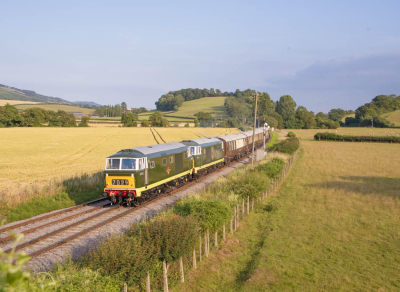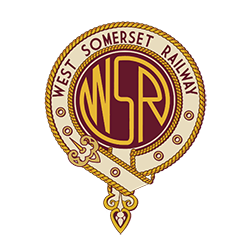
A total of 101 Class 35s were built between 1961 and 1964. They were allocated all over the Western Region. D7017 and D018 entered service with British Railways at Bristol Bath Road depot in January 1962.
The first withdrawals came in 1971, with some locos scrapped being less than nine years old. This was due to British Railway’s standardisation with diesel electric types.
Full withdrawal of the fleet was planned for 1973 and a farewell tour, “The Hymek Swansong” ran in the September of that year. Due to loco shortages, ten ‘Hymeks’ soldiered on to 1975, when they were finally withdrawn. Of these, four have survived into preservation.
In 1975, D7017 was the first loco that was acquired by the DEPG, straight out of service with British Railways at Old Oak Common depot. The loco was moved to Taunton in 1975, before moving to Minehead in 1976 and became the first diesel locomotive to haul a service train on the West Somerset Railway in 1977.
D7018 was first located at Didcot Railway Centre for a number of years, before moving to Williton to join sister locomotive D7017. It had a major engine failure in 1995 and went under a major overhaul. 24 years later, in 2019, it returned to service at the West Somerset Railway.
Technical Specification
- Engine: Bristol-Siddeley-Maybach MD870 V16 twin turbocharged and intercooled 87 litre high speed diesel
- Transmission: Stone-Maybach-Mekydro K184 4-speed hydraulic gearbox
- Weight: 73 tons
- Length: 52 ft
- Output: 1,740 hp at 1500 rpm
- BR Power Rating: Type 3
- Speed: 90 mph
- Fuel Capacity: 600 gallons
- Wheels: B-B
- Tractive Effort: 49,000 lbs (maximum)
Locomotive Status:
D7017: Operational
D7018: Operational currently away from the railway
ADDRESS
West Somerset Railway,The Railway Station,
Minehead Somerset,
TA24 5BG





